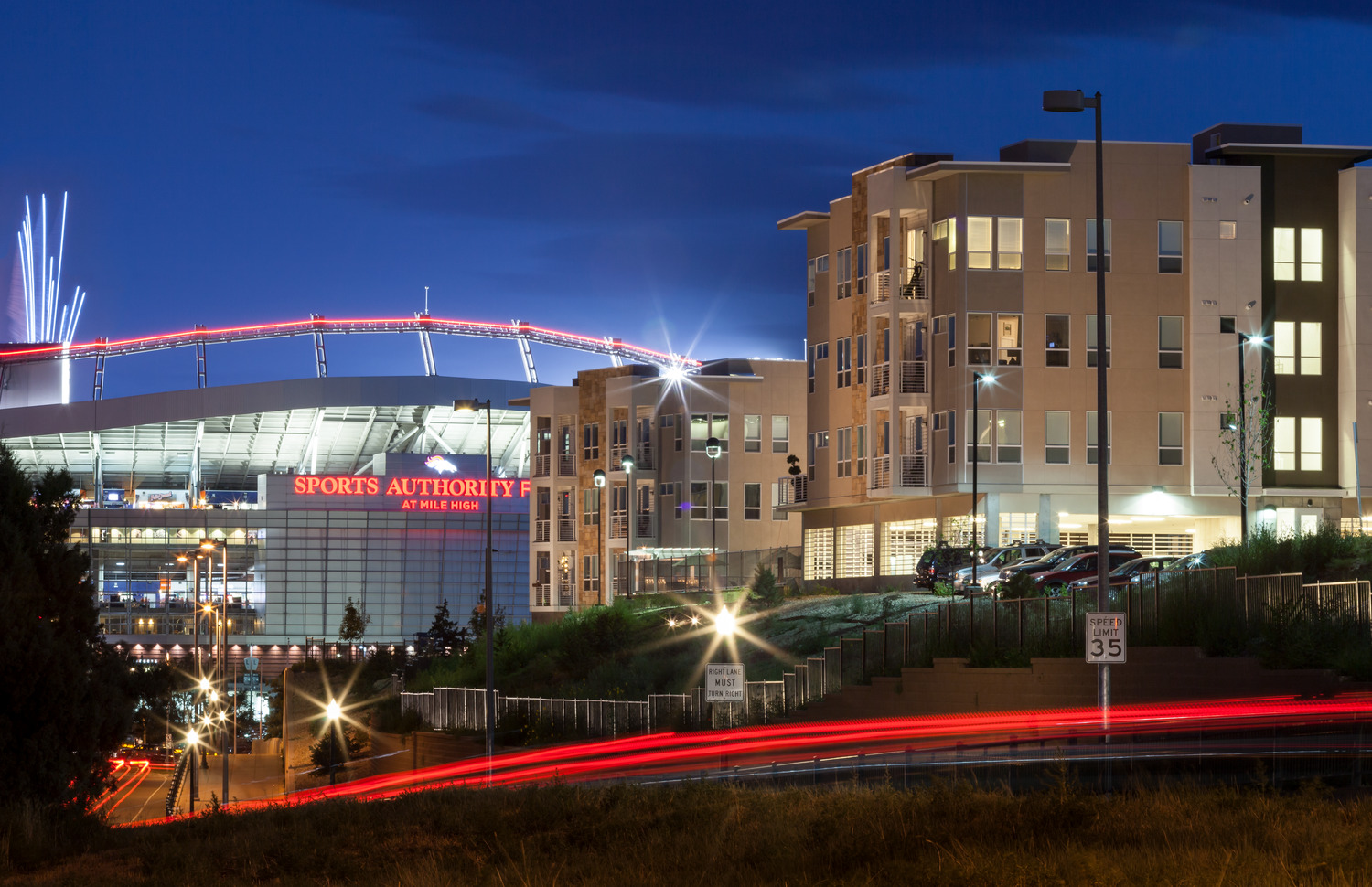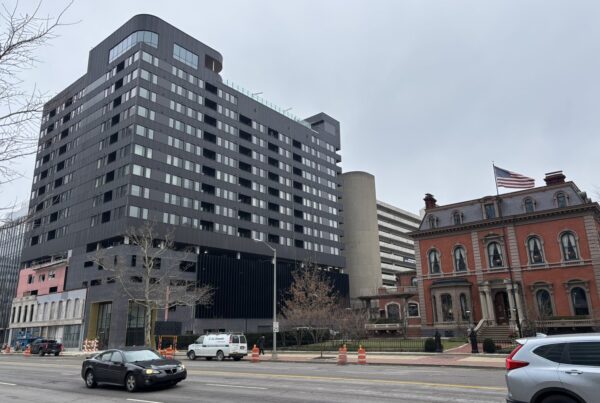As questions continue to arise surrounding the current state of the Denver real estate market and how it will fare in upcoming months, we thought we’d turn to a few industry insiders and ask them to share their insights with us. We hosted a webinar with Cary Bruteig of Apartment Appraisers & Consultants, and Chris Cowan and Terrance Hunt of Newmark Knight Frank – three essential professionals for getting development deals done in Denver – to learn more about their outlook on multifamily development. Everyone agreed that Denver, and Colorado in general, are faring much better than other locations and that multifamily housing continues to perform well compared to other assets. Here are a few of the key things we heard:
Cary Bruteig, the Owner and a Principal at Apartment Appraisers & Consultants, shared valuable information regarding the status of the market:
- The number of proposed apartments continues to increase as developers put more sites under contract to build.
- In contrast, the number of building permits has fallen 31% from 2017 to 2019. This decrease results from an elongated planning approval process, and construction costs being too high.
- As a result of fewer starts, the number of units under construction has fallen 27% since the peak in 2017, and will continue to decrease looking forward.
- With fewer projects under construction, construction crews are spread less thin and projects can be completed with fewer delays and in a shorter construction window. This further reduces the number of units under construction.
- There are about 60,000 units in the pipeline, combining units that are both proposed and under construction.
- Population has continued to grow and will likely continue to grow despite a recession, but there may be more renters who are unable to pay rent.
- Job growth has fluctuated dramatically over the last 20+ years, but apartment absorption has been far more steady. Even over the last few weeks, absorption has still been positive.
- Rent growth has continued for all ages of properties in the Denver Metro over the past couple of years with vacancy rates hovering around 5% to 6%. With future vacancy rates predicted around 8%, rent growth will be close to zero.
- Nationally, collections are at 80.2% for May 2020, which is an increase over April and only 2.7 percentage points less than they were during the same period in 2019.
Terrance Hunt, Vice Chairman of Newmark Knight Frank, shared information about rent collections and the state of development:
- Though Denver extended the moratorium on evictions to May 31st, Colorado has fared better than the national average and has not seen a significant increase in the number of individuals who are unable to pay rent.
- Colorado is ranked 5th lowest in terms of the increase in unemployment claims since the onset of COVID-19, likely attributable to how diversified our economy is.
- With oil and gas occupying more than 15% of the downtown office space, we could see vacancies and job loss in these areas.
- Vacant office space doesn’t translate negatively to the multifamily industry. In fact, it may be the opposite, freeing up space for big companies to relocate or open additional offices in Denver, following in the footsteps of other giants like Salesforce, Facebook, Home Advisor and Slack. In addition to any future vacated space, there is an additional 3 million square feet of recently delivered and under construction office space in downtown Denver.
- The Denver lifestyle holds appeal for the underemployed and unemployed, contributing to the city’s continuous population growth.
Chris Cowan, Executive Managing Director, and a top land broker for Newmark Knight Frank, spoke about land transactions and what Denver’s pipeline will look like in the upcoming months:
- From what we’ve seen in the past two months, the pipeline is staying relatively strong, with only a handful of deals not pushing forward.
- However, the pipeline may shrink by around 25%, with the timeline of many deals simply being just get elongated due to difficulties with entitlement, zoning, unknowns around hard cost, and difficulties acquiring capital.
- Sellers are not currently pulling their land off the market and there is no evidence that supports a decline in land value as a result of COVID-19.
- Developers continue to show a range of interests across both urban and suburban properties, with some taking interest in breaking into the single family for-rent market.
The group then participated in a question and answer session:
Q: Have you seen impacts on secondary Colorado markets?
A: Occupancies and rent levels are similar to where they were two months ago throughout Denver and suburbs like Greeley and Castle Rock. There has been some vacancy in cities like Fort Collins due to students vacating early. It can be difficult to get traditional capital to want to invest in secondary markets.
Q: How do you anticipate amenity packages changing due to the pandemic?
A: We may see an increased number of one-bedroom units with dens, the inclusion of desk spaces in larger two bed, two bath units, clubhouses with individual office spaces, as well as overall increased cleanliness and reconsiderations of how elevators are used, doors are opened and closed, etc.
Q: Do you have any guesses on the impact to the office market and suburban housing market? Will there be a flight to the suburbs with a rise in telecommuters?
A: It still largely comes down to demographics and Denver is home to a young, social population that isn’t likely to pick up and move to the suburbs just yet. However, a rise in telecommuting may lead people from higher-density cities like Chicago, Los Angeles, or New York to places like Denver due to the lifestyle. In regard to office spaces, they may remain vacant for quite some time, while apartment buildings always get leased up.
Q: We’ve seen the multifamily industry shift away from a car dependent lifestyle toward TODs and car-shares. Do you see a shift back the other way due to a fear of public transportation, and if so, do you think that shift would be a short-term or long-term change?
A: Denver TODs lack inner-city connections. While in the near-term people may avoid public transportation, as the city reopens and traffic gets worse, people will go back to using public transport and default to what is most convenient for them.
The biggest takeaway from our discussion is that projects are lengthy and take a long time to get approved. Despite the unknowns, the most logical way to proceed right now is to continue to push deals forward, as we have successfully persevered through disruptions before. It’s key to remember that real estate is long-term and the long-term outlook for Denver’s market is very strong.
To watch a short clip of the webinar, click below:
If reading this blog has you inspired to start moving forward on your next multifamily development, give us a call at 303.832.4474. For more detailed information about the state of the multifamily market in Denver, please contact Cary, Chris and Terrance and they will be happy to answer any questions that you have.
Cary Bruteig, MAI – Owner and Principal
Apartment Appraisers & Consultants
Terrance Hunt – Vice Chairman
Chris Cowan – Executive Managing Director
Newmark Knight Frank






